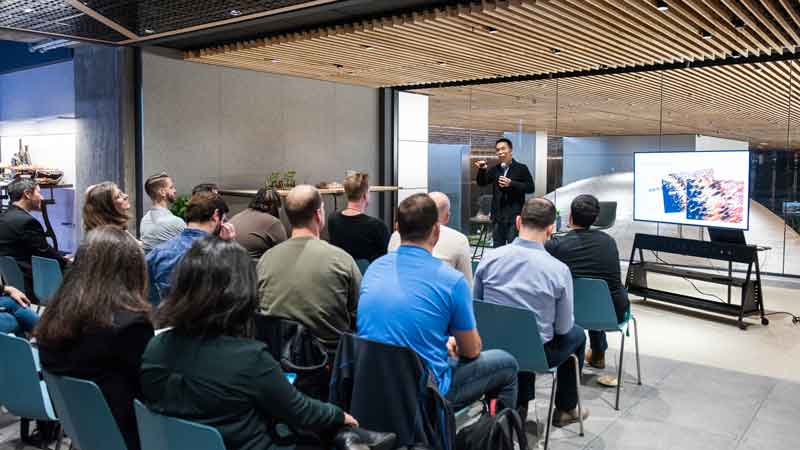
Not everyone can be a talented computer programmer. But knowing how computers “think” is an absolute must for any business person.
Luckily, John Maeda is here to help. After years of teaching at MIT and working with tech powerhouses like Sonos, Google, and eBay, Maeda knows how companies can harness the exponential power of technology and computation. In his new book How to Speak Machine: Computational Thinking for the Rest of Us, he offers a high-level explanation of how technology works, calling it “the equivalent of Spanish 1” for tech.
During a recent visit to LIFT Labs, he offered the following advice for startups:
- Focus on the “after wow.” It’s natural to seek a positive initial reaction from customers using your product for the first time. But it’s much more valuable and sustainable if customers are still mesmerized weeks or months later. “Designers should be designing for the ‘after wow,’ — the experience after a customer brings a product home, has had it for a few weeks and says ‘wow, this made a big impact on my life,’” says Maeda.
- Be inclusive. “In the end, I think that inclusive companies are going to win out. Inclusivity means many types of people on your team that are actually different from each other — and recognizing that’s going to cause some dissonance. But finding creativity in that, that’s what a great company is about.”
- Think exponentially, not linearly. Machine computation is so powerful that you can create products that aren’t quite finished yet and let them evolve in the wild. Such minimum viable products let you see what aspects users respond to, and which should be scrapped in later iterations.
- Learn how to speak technical language (especially if you’re a non-technical founder). There are lots of great startup ideas but they’re nothing without execution. That means your first – and most important – hires will likely be developers. Make sure you know how to communicate with them and understand the work they do each day. “If you don’t understand the person’s language, you can’t talk with them. If you have developers on your team, this book can help you understand what [technical] language they’re speaking so you can make some sense of it,” said Maeda.
- Be aware of the world-changing power of technology. If a technologist hunkers down to work on a new project, they could emerge with a world-changing technology. But in the process, they could unknowingly create something harmful. “I could be writing a virus program that could destroy all our bank records by accident,” said Maeda. “Being aware that is possible is important.”
